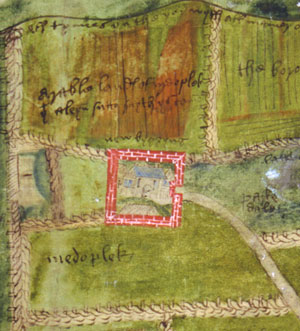 |
 |
 |
 |
 |
 |
 |
|
The organisation of the granges (14/14)
The management of all the abbey granges was overseen by the cellarer, a monastic official (or obedientiary) who resided at the abbey, but the actual running of each grange was the responsibility of the resident grangemaster, who was a lay-brother, and might have the help of an assistant.(22) The grangemaster was permitted to speak with all staff and guests when necessary. Speech was otherwise restricted, and there was to be silence in the dormitory, refectory and warming-house. Masters, however, were allowed to speak with juniors at work about work. Shepherds and herdsmen were to observe silence when travelling but might briefly return a greeting, give directions, or answer enquiries about a stray animal. Once at the pastures it was conceded that they might speak softly in pairs; this was not, however, to be an excuse to gossip. (23) Whereas the cellarer and grangemaster between them were responsible for the daily organisation of the granges, the lay-brothers’ spiritual needs were looked after by the master conversi, a monk official (obedientiary) of some standing. He visited the granges to hear the lay-brothers’ confessions on Saturdays and also the days before they received Communion. Granges often provided hospitality for passers-by and a master of guests was appointed to provide for visitors. The Bursar’s Account Book for Fountains Abbey suggests that, at least by the fifteenth century, entertainment on the granges could be quite lavish. This reveals that Abbot Greenwell entertained the Duke of York at Swanley grange, and on this occasion served fish bought from a Dan Henry at 2s 8d.(24) Women were not allowed to stay within the grange complex – either to work or as guests - but might, with the abbot’s or prior’s permission, enter the court. While women were forbidden from helping with animal husbandry or laundering they were sometimes hired at harvest time to work in the fields.(25) |
